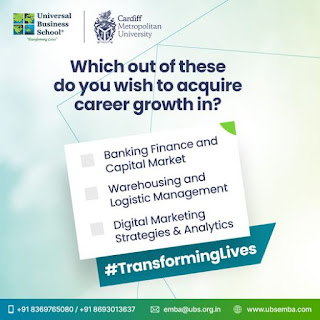MBA vs Part Time EMBA from UBS Business School
Introduction
The UBS EMBA program is a Part-time executive MBA for experienced executives who want to advance their careers by gaining a global perspective on business management. It's designed for students with two or more years of work experience and offers an intense, fifteen-month curriculum that combines academic theory with real-world industry applications.
Work Experience
Work experience is an essential element of the UBS MBA program. All applicants must have a minimum of two years of full-time work experience. You can not apply for the program without any prior experience. For example: If you’re just starting at a company as an intern or trainee, then this may give the college some insight into why you want to pursue an MBA degree with them; if it’s been several years since leaving school and you now find yourself back in academia looking towards career advancement within finance/investment or consulting firms then the college would be interested to hear from you.
Full-Time MBA vs Part-Time MBA
The full-time MBA program is designed for individuals who have decided to pursue their MBA education after leaving work. This means you will need to be able to dedicate 24 months of your life and focus on your studies only during this period. You will also be required to take additional courses outside of the normal curriculum and do internships to gain industry exposure.
Whereas at UBS Business School the Part-Time Executive MBA program is traditionally aimed at individuals who have decided to pursue their MBA education while continuing to work full-time. An executive MBA (EMBA) program is designed for executives who have many years of work experience and generally seek a one-year or sixteen months of a part-time degree to advance their career potentials. Some schools offer programs that are both part-time and executive or sometimes call it part-time accelerated.
The main difference between an EMBA and an MBA is the length of the program, with the former being shorter than its flagship counterpart. Another difference is that while you can take classes at any school you want during your EMBA, most schools require you to apply through their website before being accepted into an online learning environment.
MBA and Executive MBA programs are different
EMBA programs are usually shorter than Part-time programs.
The duration of an EMBA program is usually between one and two years, which makes it a great option for those who want to take their career forward and they don’t have time left over after graduation. These programs can be completed within a year or two depending on how fast you progress with your studies. On the other hand, full-time MBA programs often take longer to complete because they require more dedicated effort from students throughout their education; this may mean leaving work. Most students spend their final semester completing projects before submitting them for evaluation by faculty members—and some even complete internships related to their field before graduation in a traditional MBA.
Conclusion
The part-time MBA program at UBS Business School is unique in that it's designed for executives with many years of work experience who want to develop their management skills and broaden their perspective on business without sacrificing their job as their Weekend MBA Programs are conducted solely on Sundays.
If you are considering an EMBA/ Part-Time Weekend MBA program, check out the website of UBS Business School.



Comments
Post a Comment